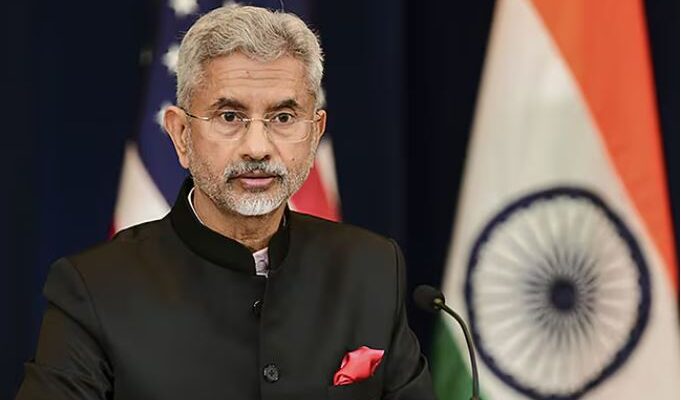The phone call between External Affairs Minister S. Jaishankar and Foreign Minister Amir Khan Muttaqi
New Delhi: On Thursday, India expressed its approval of the Afghan Taliban regime’s dismissal of efforts to foster distrust between the two nations during External Affairs Minister S. Jaishankar’s initial discussion with Taliban Acting Foreign Minister Amir Khan Muttaqi. The phone call between Jaishankar and Muttaqi followed a meeting between the Taliban foreign minister and Indian Foreign Secretary Vikram Misri in Dubai in January, occurring amid rising tensions between India and Pakistan.
This interaction marked the highest-level engagement between the Indian government and the Taliban since their takeover of Afghanistan in August 2021. Jaishankar noted on social media, ‘I had a productive conversation with Acting Afghan Foreign Minister Mawlawi Amir Khan Muttaqi this evening. I greatly value his condemnation of the Pahalgam terrorist attack,’ referencing the April 22 attack that resulted in the deaths of 26 civilians and prompted India to initiate Operation Sindoor to target terrorist infrastructure in Pakistan-controlled areas.
He also appreciated Muttaqi’s strong rejection of recent efforts to sow distrust between India and Afghanistan through misleading and unfounded reports, likely alluding to a claim in certain Pakistani media that suggested India had ‘engaged’ the Taliban for a ‘false flag’ operation in Pahalgam. Jaishankar highlighted India’s longstanding friendship with the Afghan people and its ongoing support for their developmental needs, while exploring avenues for future cooperation.
strengthen bilateral relations, enhance trade, and foster diplomatic engagement
A statement from the Taliban indicated that Jaishankar and Muttaqi discussed ways to strengthen bilateral relations, enhance trade, and foster diplomatic engagement. Muttaqi acknowledged India as a significant regional player and emphasized the historical ties between Afghanistan and India, expressing hope for stronger relations in the future. He reaffirmed Afghanistan’s dedication to a balanced foreign policy and constructive relationships with all countries.
Additionally, he requested assistance from India in facilitating visas for Afghan traders and patients, as well as the release and repatriation of Afghan prisoners currently in India. The Taliban’s statement noted Jaishankar’s reference to India’s historical connections with Afghanistan and the necessity of collaboration in both political and economic domains.
Jaishankar assured Muttaqi that the matter of Afghan prisoners would receive prompt attention and that efforts would be made to simplify the visa process. Furthermore, both parties underscored the importance of developing the Chabahar port in Iran, which is operated by an Indian state-owned company and has been utilized for shipping commercial goods and humanitarian aid to Afghanistan.
The Taliban expressed interest in using this port for trade with India, especially following the closure of the only operational land border crossing with Pakistan at Attari, which had been heavily relied upon by Afghan traders. This dialogue between Jaishankar and Muttaqi occurred amidst deteriorating relations between Pakistan and Afghanistan over various issues.
Islamabad has charged the Taliban with not controlling the Tehreek-e-Taliban Pakistan (TTP), and high-ranking Pakistani officials have recently asserted that India is utilizing the TTP to attack Pakistan. Nevertheless, they have not presented any evidence to back these claims, which Indian officials have dismissed.




